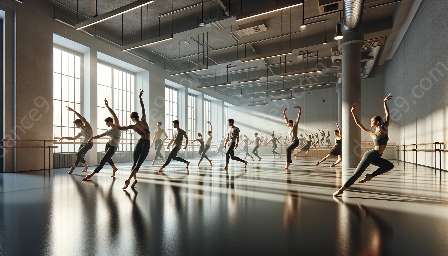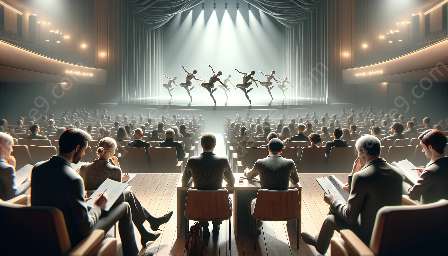Contemporary dance is a highly demanding artistic career that requires exceptional physical and psychological attributes. In this article, we delve into the intricate psychological demands of pursuing a career in contemporary dance and how contemporary dance training plays a significant role in preparing dancers to navigate these challenges.
Mental Resilience in Contemporary Dance
The unpredictable nature of contemporary dance performances demands mental resilience from dancers. They must be prepared to adapt to last-minute changes, cope with performance-related stress, and overcome setbacks. The ability to maintain focus and composure amidst the pressure of performing is essential for sustaining a successful career in contemporary dance.
Emotional Expression and Vulnerability
Contemporary dance often involves conveying deep emotions and narratives through movement. Dancers must tap into their emotional vulnerability to effectively communicate the intended message of a performance. This constant emotional exposure can be mentally taxing and requires a high level of emotional intelligence and introspection.
Creative and Critical Thinking
A career in contemporary dance demands continuous and innovative creativity. Dancers are expected to bring fresh perspectives to their choreography and performances, requiring them to engage in constant critical thinking and problem-solving. The mental agility to explore unconventional movements and concepts is crucial for pushing the boundaries of contemporary dance.
Physical and Mental Well-being
The pursuit of a career in contemporary dance can exert significant physical and mental strain on dancers. Long rehearsal hours, rigorous training, and frequent performances can lead to mental fatigue and potential burnout. Maintaining a healthy balance between physical and mental well-being is imperative for dancers to sustain their passion and longevity in the industry.
The Role of Contemporary Dance Training
In response to these psychological demands, contemporary dance training programs place an emphasis on mental preparedness and resilience. Through specialized exercises, workshops, and mentorship, dancers are equipped with coping mechanisms to manage performance pressure, emotional expression, and creative blocks. Furthermore, holistic training approaches prioritize mental and emotional well-being alongside physical conditioning, nurturing dancers' overall psychological fortitude.
Conclusion
Contemporary dance is an art form that not only challenges the physical capabilities of dancers but also places significant psychological demands on them. It is the amalgamation of mental resilience, emotional vulnerability, creative thinking, and holistic well-being that defines a successful career in contemporary dance. By understanding and addressing these psychological demands, contemporary dance training plays a pivotal role in preparing dancers for the multifaceted challenges of the profession.




























